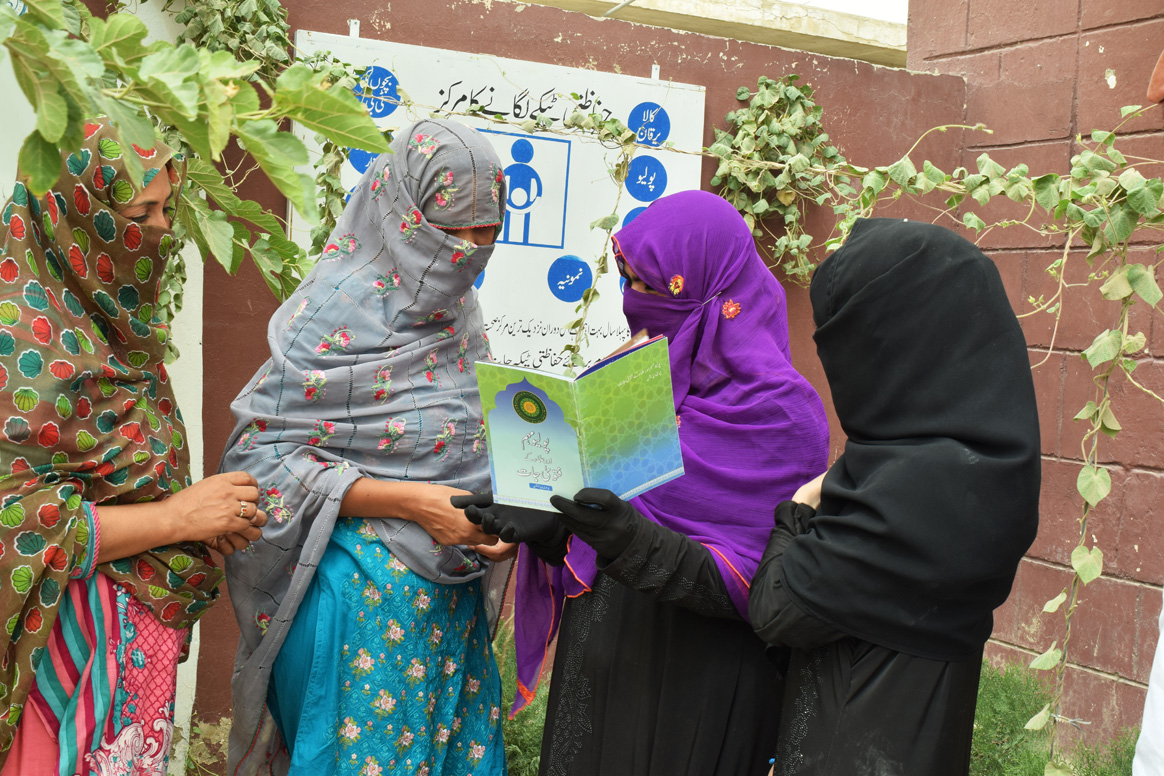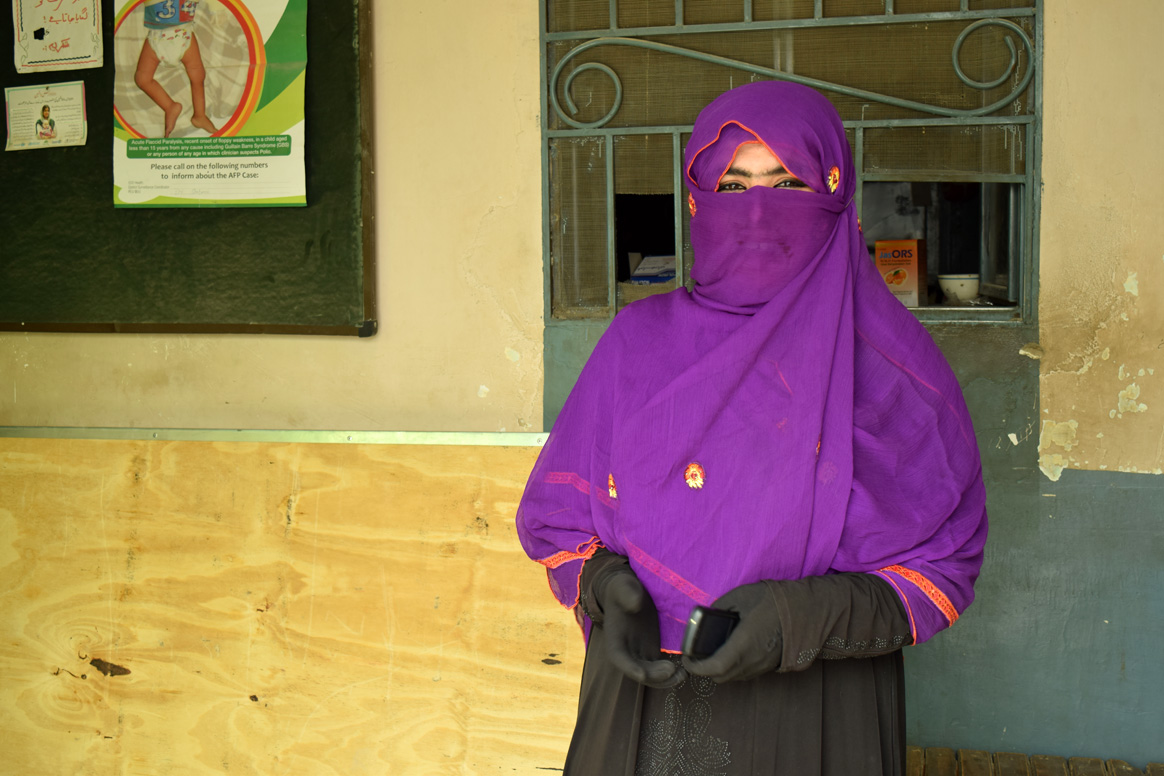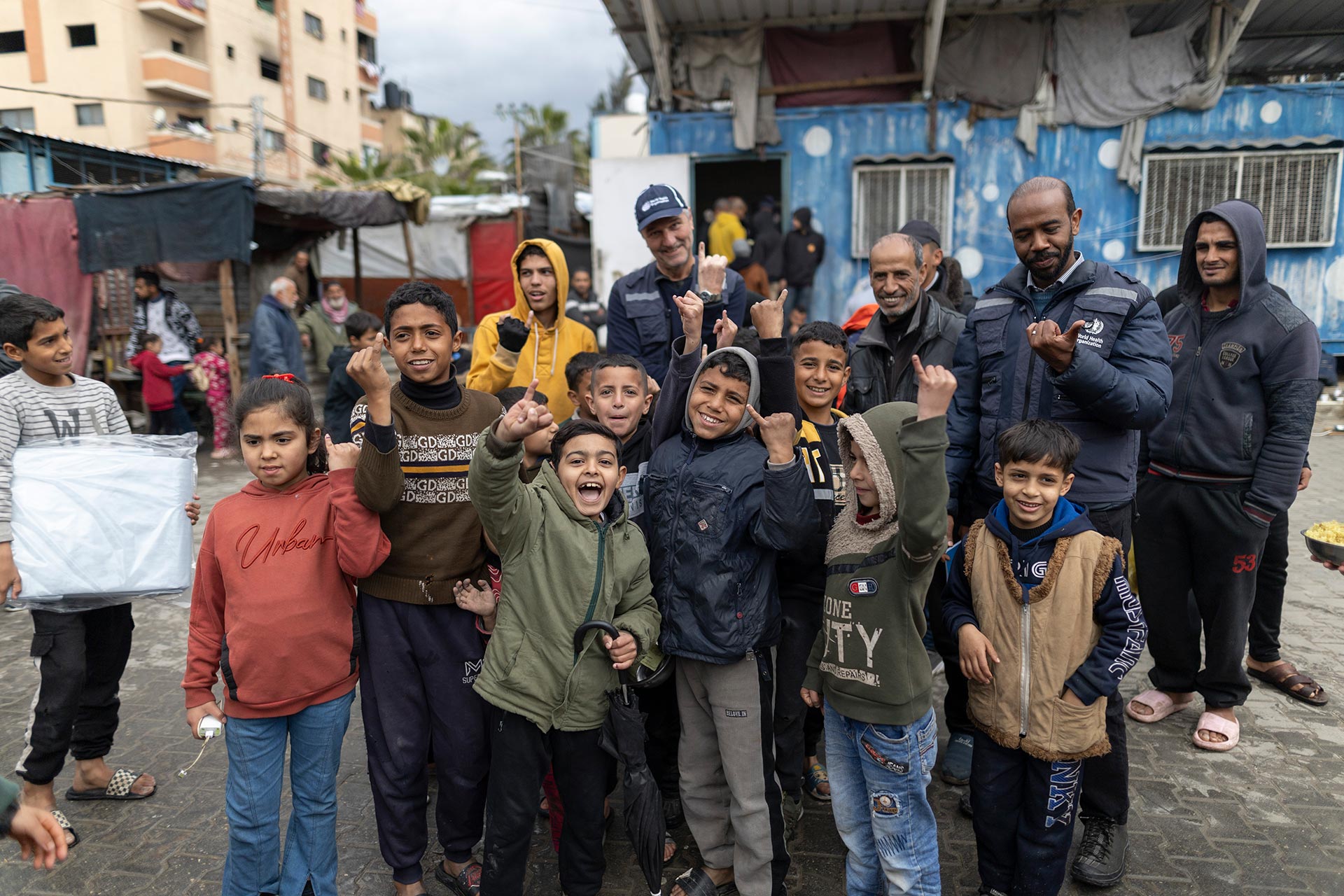
In Union Council Kechi Baig, Quetta district, Balochistan province of Pakistan, Asma needs no introduction. When she talks, people listen. First, when she was one of the few female religious scholars at her local madrassa (school), and of late, as a champion for the polio programme.
For Asma, the segue into community health sensitization was quite natural. Her religious vocation as a teacher, also known as an Alima, and her life-long aspiration to help her community, came full circle when she became a religious support person (RSP) for the polio programme.
“I always wanted to become a doctor… but (it just so happened) I joined a madrassa and became an Alima…when I heard that the polio programme is looking for female RSPs, I took the opportunity. Even though I did not become a doctor, I can workwith doctors to serve humanity,” said Asma about her motivations.
As one of three female RSPs out of a team of 118, she has given unique credence to the polio efforts in her community. Kechi Baig accounts for a significant number of refusals to vaccinate. Community health workers are sometimes unable to make headway with refusal families. In such cases, Asma plays an important role as a faith-based counsellor, drawing upon her knowledge and expertise on religious teachings with communication skills and personal friendships within the community. Asma convinces 15-20 ‘hard refusal’ families in each vaccination campaign.
“I visit the households and leave with grandmothers convinced. As a madrassa teacher, I have seen that most females are unaware of religious teachings of Islam and the role of women to improve society. The polio fatwa (Islamic rulings) book proves to be very helpful because it contains authentic fatwas from venerated religious scholars.”

Re-appropriating polio through a religious lens
Asma realizes that bringing an attitudinal change through one-off encounters with refusal households is not enough. She saw the need for a long-term counselling relationship. Now, the polio programme team also conducts community engagement sessions with a cross-section of women across the community — from mothers to grandmothers to young students to women training at Asma’s madrassa—to raise awareness about polio.
“It is a great achievement being part of the training sessions about polio and health where I get to talk about the fatwa book. In almost every campaign I work with community health workers and convince 15 to 20 hard refusals for vaccination. It’s a big opportunity to save children from polio,” explained Asma.
Religious support persons, particularly women RSPs like Asma, play a very important role in mediating how people consider their choices for and against polio vaccination through the religious interface. By incorporating educative, spiritual, and medical knowledge, faith-based counselling goes a long way in neutralizing any refusal predispositions within the community.



